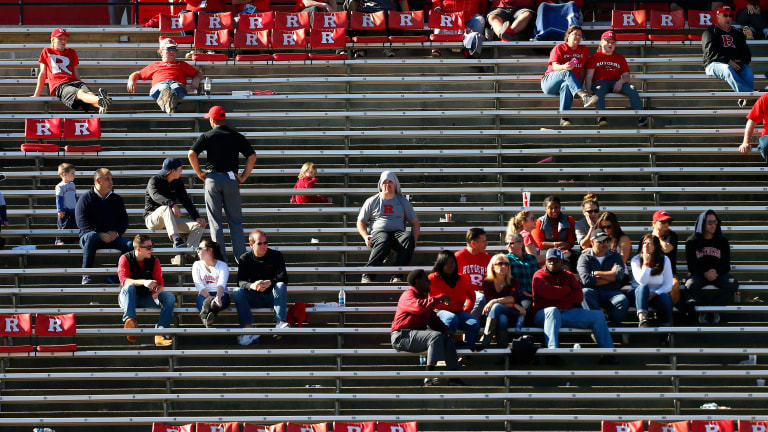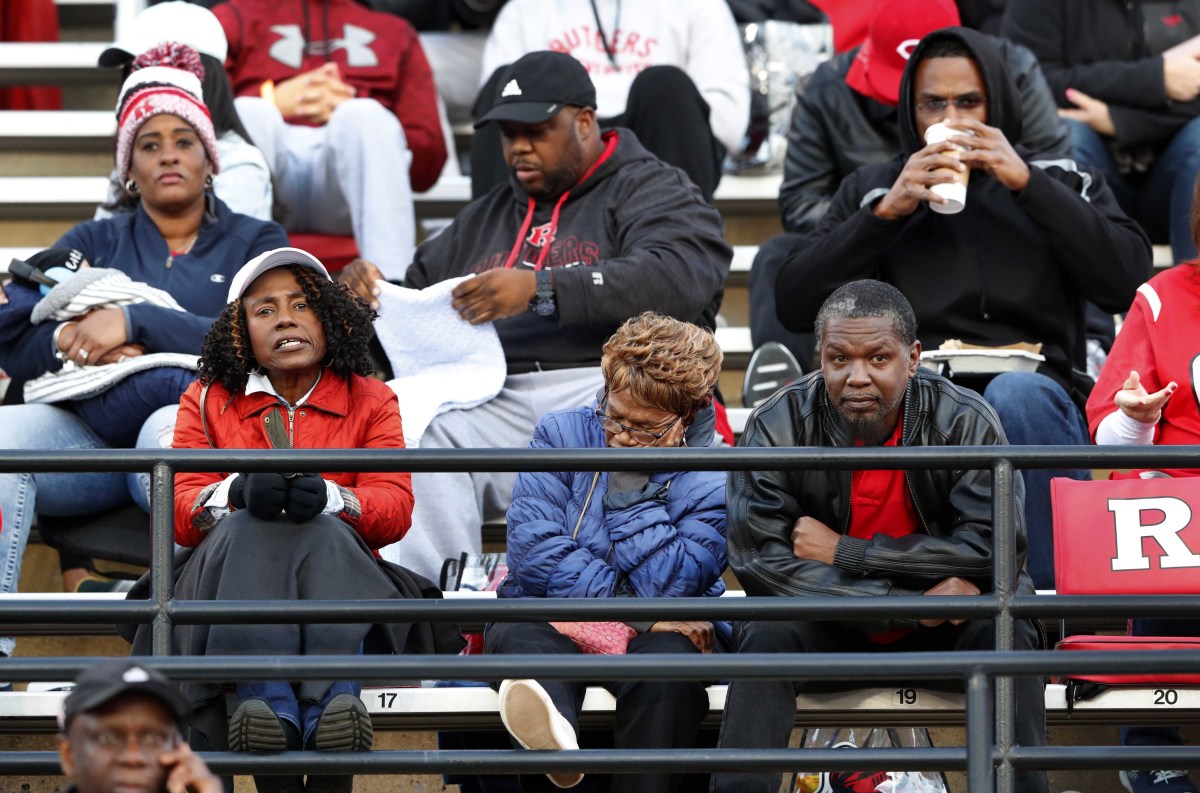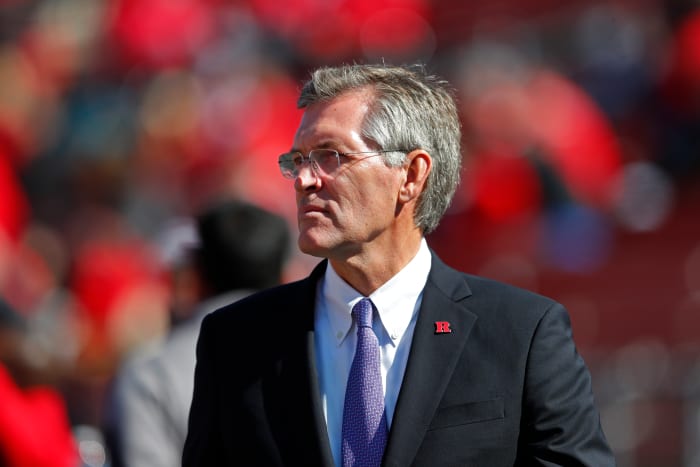
COLUMN - An Open Letter to Big Ten Commish Kevin Warren - RE: Rutgers

To Mr. Kevin Warren,
I’ve yet to do this officially but please accept my congratulations on your new appointment as the sixth commissioner in the history of the Big Ten Conference. I have no doubt that what Michael A. McRobbie, president of Indiana University and chair of the executive search committee, said about your “enormous character, integrity, knowledge and passion” for the massive responsibility this job entails is nothing but spot on.
However, before you fully take over the job reigns this New Year’s Day, we need to have a serious talk because you’re going to have to make your first big decision.
Yes, unfortunately, it’s about Rutgers. Something has to be done because the status quo simply isn’t working for either party in what can only be described as a mutually destructive partnership.
Since you already started the job transition from Jim Delany to yourself on Sept. 16, I’m sure you’re aware of overall scope of the situation but here’s a summary: Since joining the Big Ten on July 1, 2014, Rutgers has not won a conference team title in any of the 24 sponsored men and/or women’s sports. According to USA Today’s data on 2017-18 athletics department budgets, Rutgers’ athletics budget is the second-lowest of the 13 public institutions in the Big Ten Conference and it is rumored to now be the lowest due to Maryland getting more of the league’s revenue-sharing money.
And then that’s when we get to football. The highest revenue-producing athletics endeavor of any of the 14 institutions currently in the conference. Local reporting from NJ.com have documented how the negotiations between Greg Schiano (universally seen as possibly the only man to save an embarrassing program that has lost 20 straight conference games) and Rutgers broke down due to the school’s unwillingness to raise and spend the funds needed for the 10th highest-paid head coach in the league, new facilities, recruiting travel and an assistant coaches salary pool. Rutgers hired an outside firm in 2014 to assess the athletic department and its 327-page report said the football stadium was “in a state of disrepair” and that other football facilities were “significantly subpar” compared to other Big Ten programs. And yet, none of those facility upgrades were promised in writing to Schiano by 2023 - when Rutgers is finally expected to get a full revenue share of the conference’s income. NJ.com is reporting many of the significant athletics boosters at Rutgers consider their “checkbooks were closed now that (athletics director Patrick) Hobbs has failed to land Schiano.”

Rutgers Scarlet Knights athletic director Patrick E. Hobbs watches game against the Maryland Terrapins during the first half at SHi Stadium.
Noah K. Murray/USA TODAY Sports
You’re eventually going to have to answer this question: If Rutgers is unable to field a competitive football roster now and likely into the future, have a realistic chance to end the near 30-year NCAA Tournament drought in men’s basketball or provide a Top 50 ranked institution in the annual U.S. News & World Report rankings (Rutgers was tied for 62nd in the 2019 version), what is the benefit of having them in our Power 5 Conference family and is a breakup needed for both parties?
It seems the obvious answer is Rutgers allows the league to have its conference television network in all cable boxes in New York, the No. 1 media market in this country. And therefore, by intimidating those cable companies to buy the Big Ten Network and the other networks it has television deals with (ESPN, ESPN2, ESPNU, Fox, FS1, FS2) so New York eyeballs are witnessing their product, the $759 million generated during the last fiscal year should be expected.
But what happens when the television contracts end and the networks say they want a new, fiscally-responsible deal? What then? What happens when these contracts run out and more people already get Big Ten Network programming because of a streaming service? According to Forbes Magazine, data were published by the consulting firm Deloitte found that 69 percent of consumers pay for some type of internet video streaming service, while only 65 percent of consumers pay for cable or satellite subscriptions. This 69 percent is a 10 percent increase from last year and a huge increase from 2009, when just 10 percent of consumers subscribed to internet video services. I’m one of those 69 percent of people who have streaming television and if you don’t mind me saying so, it’s great.
Mr. Warren, do you think ESPN is laying off people in this cord-cutting era simply because downsizing is a new business strategy? Of course, you don’t. You were the Chief Operating Officer for the Minnesota Vikings of the National Football League since 2005 and played a critical role in all business, financial, legal and operational aspects related to the Vikings new stadium and also played a key role in the design, development and planning of the franchise’s new on-site facility headquarters. You’re able to move with the times in a culture and business way that made you the perfect candidate for this job.
What happens, sir, when it suddenly becomes less critical for cable viewers in New York to get your product when a streaming service does it no matter where a person is from, currently resides or is located at any given time? You don’t need me to tell you this answer either. Rutgers becomes as irrelevant to the growth of this league as it already has become on the playing field/court.
“The dirty little secret is Rutgers doesn’t belong in the Big Ten”. The quote was said Monday by ESPN Pardon The Interruption host Tony Kornheiser. I would argue Kornheiser’s point in two ways. 1) This isn’t a dirty topic at all. 2) It’s never been a secret Rutgers didn’t belong.

Rutgers Scarlet Knights fans in the stand during the second half of football game against the Minnesota Golden Gophers at SHI Stadium.
Noah K. Murray/USA TODAY Sports
Rutgers is currently on the path in football and men’s basketball that Northwestern was on from 1964-1994. Rutgers’ winless streak in Big Ten Conference games, which is currently at 20 consecutive games and likely to become 21 after playing Penn State this weekend, could absolutely approach Northwestern’s 39 in a row from 1979-1982. The reason Northwestern’s long drought in the major sports was palpable was the campus’ local interest of Chicago to the Big Ten’s footprint. Rutgers isn’t even the conference’s pinky toe. It’s more like the bunion or corn on that foot.
Your choice is simple really: Either help Rutgers with more internal conference revenue loans to bring its athletics competitively into the 21st century or remove it completely. To sit back and hope Rutgers athletics improves by pure happenstance seems penny wise and pound foolish in the modern-day world of big-time college athletics.
If it helps, I hear representatives at Missouri and Cincinnati (both of whom have regional ties, bigger endowments than Rutgers and are tied in the U.S. News & World Report rankings with Nebraska) might be interested in having a more enjoyable chat as well.
Please enjoy your Thanksgiving and Christmas holiday and thank you for your time,
A concerned Big Ten Conference viewer since 1984